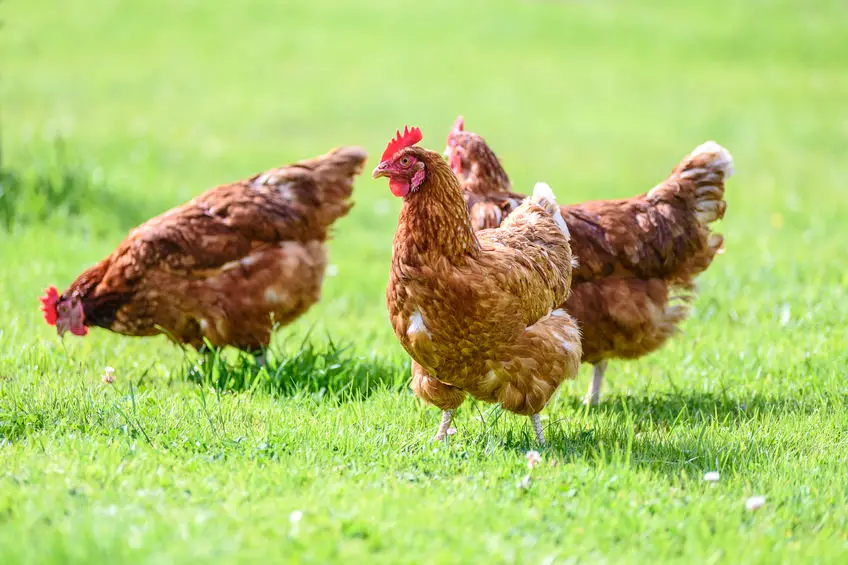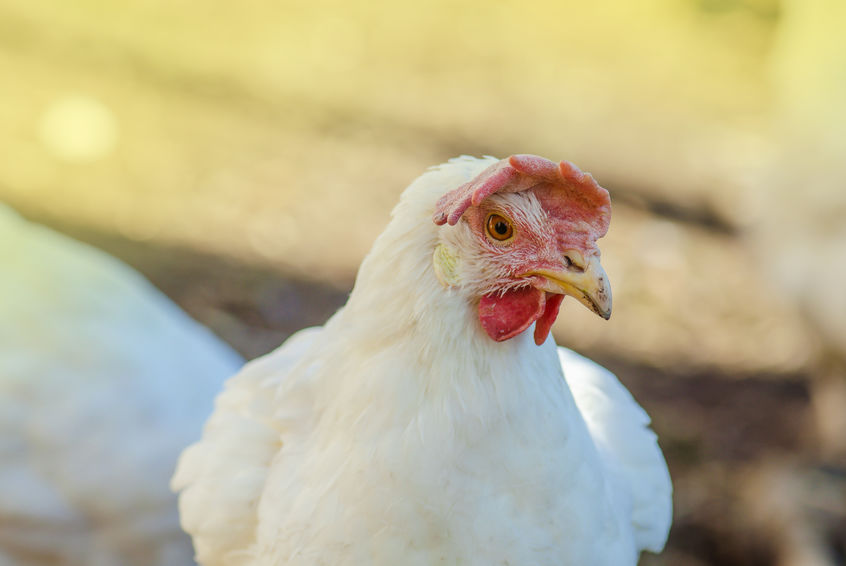Isn’t it fun getting baby chicks! They’re tiny, fuzzy, and fun to take care of. Over time you enjoy the hundreds of eggs they lay, watch them grow, and enjoy all their antics in the coop. But what about when they get old?
Egg production drops but they still need to eat…can you justify keeping them or is it time to consider alternatives. It’s a harsh reality all chicken owners must come to grips with because like us, chickens age too!
In this article we’ll delve into the topic a bit further, providing you with a great list of what to do with old laying hens. Ok lets get at it!

Considerations
There are a few variables to consider when looking at what to do with aging hens before making a decision on whether to keep them or not.
How Old Do Chickens Live?
The reported life expectancy of a chicken is 5 – 10 years old. We can verify that from our own experience as many of our older hens have made it to 10 years old.
Through the years, a few of our chickens died for various reasons, including predation or illness. Others we sold or gave away after two or three years.
This is something to keep in mind if you’re planning to keep your flock for the entirety of their natural life span. Feed costs, decreased egg production through the years, and more, are all factors to consider.
For some, it’s a no-brainer. The flock become like pets and not strictly for utilitarian purposes. The additional feed costs are worth it, just like they would be for a cat, dog, lizard, etc.
For others, it’s not a problem to cull the chickens once egg production drops. Let’s take an in-depth look at all the possibilities to consider.
What To Do With Your Old Laying Hens
The following list is a good starting point. But a lot of your decision will hinge on how you view your chickens. Some folks view their chickens as pets and could never cull them, others see them as strictly utilitarian and used for eggs and meat. Period. Still others fall somewhere between the two extremes.
If you’re still researching whether or not to even own chickens, check out this article on the pros and cons of raising chickens to get a sense of what it’s like not only to raise them and experience the joy of finding eggs in the coop, but also how much work it takes to maintain your flock and coop.. and looking for great hen breeds, see this article.
Okay, on to the list!
Keep Your Chickens As Pets
For some, this is a great option. If you don’t own a lot of chickens and don’t mind a decrease in egg production, keeping your flock around the yard or house provides entertainment. We get it. Watching chickens scratching around outside is relaxing and enjoyable.
Your chickens will also provide some value by eating unwanted bugs and fertilizing soil!
Some people fall in love with their chickens so much, they move them from the coop to the house! If that’s a solution you’re considering, you’ll want to think about poop clean up, how to incorporate outside time, etc. There are products available for folks who keep their chickens as pets, like chicken diapers, and more!

Butcher Them For Meat/Soup
The meat of an old chicken will be tough. There’s just no way around it. But it still makes for great chicken soup or stew.
For some of you, you’re already thinking of moving on to the next item in the list. We understand. It’s hard to “stomach” the thought of dispatching and eating the birds you’ve raised since they were chicks.
However, it’s important to keep in mind the quality of life the chicken has had! In large scale poultry operations, chickens are packed into confinement barns, often in cages, to lay eggs for a year or two, and then hauled away in a truck to slaughter.
Also, you know what your flock has been fed through the years so you know the meat will be safe and healthy to consume.
If you want to go this route, you don’t have to do “the dirty deed” if you don’t want to (or can’t). Just look up local butcher shops in your area and find out how the process works.
Give Them Away
For some of you, keeping them is not an option. But neither is butchering or selling them. If you fall into this category, you’re not alone.
Some possible ideas here:
- Friends – If you have like-minded friends, they may want a chicken or two, knowing it came from a responsible home.
- Animal Sanctuaries – A list of available sanctuaries can be found at Sanctuary.org.
- Humane Society – Your local Humane Society can be a great resource. Call them before heading there to make sure they can take chickens. Some do not but they can point you to some resources who can.
Sell Chickens At An Auction
This can be an easy way to move your flock on, and make a little money as well. People who attend these auctions are hoping for a good deal on chickens and may have plans to use them for soup anyway, although that is not always the case.
Not all auctions are the same, and some do not have a good reputation as they can be a dumping ground for sick or unwanted farm animals. You’d be wise to go to an auction first to check out how it’s run, see how the animals are treated, and talk to the staff before packing up the flock and heading down there.
We have sold excess roosters at our local livestock auction with success. Sometimes we make some pretty decent bank if it’s a nice one!
We’ve sold hens as well, but profits were much lower. Most buyers realize hens at an auction are past their laying prime and won’t be willing to pay top dollar.
What we like about our local auction is we can trust them. It’s a local business we’ve been to many times, not just for poultry but for other farm animals too.
Sell Chickens On Craigslist
Craigslist is still a simple, easy go-to option for many flock owners. Peruse the ads for chickens to see what hens are selling for and price yours accordingly.
We have sold many hens and roosters on Craigslist. Often, they sell quickly too depending on the price tag. Since we’re selling older hens, we don’t price them very high.
If your primary intent is to simply move them, consider advertising them for FREE on Craigslist. At that price, you can usually anticipate a lot of responses! If your area is anything like ours, they often go very quickly.

Facebook Marketplace
We are beginning to use Facebook marketplace for selling things more regularly now, including our older hens.
Like Craigslist, it’s easy to post something and there’s a large local audience who will be looking.
Another option for selling or giving away your flock is to create a post on your personal timeline. The beauty of this is you know the person your girls are going to!
Post An Ad At Your Local Feed or Farm Store
Posting an ad at your local farm store is super simple. They often have a bulletin board where you can post your listing. You may have seen these boards.
Sometimes it’s filled with pieces of paper people scribbled their listing on. Just add yours to the mix!
This may not be quite as common nowadays but is still a great option for finding people interested in buying your old hens. I often peruse through the board when at the farm store. You’ll find anything from chickens to pigs to woven wire fencing, and just about anything related to the farm.
Keep Them As Broody Hens/Mothers
If you own a broody hen (or hens), consider using them to hatch a few eggs. Those old hens would be perfectly happy sitting on some eggs all day, and it would save the cost of an incubator.
Who knows, maybe you could start a whole new enterprise with those old hens of hatching eggs and selling the chicks! It’s good to keep an open mind about the possibilities.
Word Of Mouth
Chances are, you know a few friends. At least we HOPE so! Just shooting the breeze with friends is a great way to spread the word about selling your chickens.
You know how it works from there. They tell their friends, who tell their friends…well, you get the idea ?
Closing “Clucks”
We hope you’ve gleaned a few insights on what to do with your older laying hens. It’s not easy to say good bye to our feathered friends, but sometimes it needs to be done.
The above list of ways to get rid of your flock is not exhaustive, but will hopefully give you enough information to make the right decision for you! We’ve tried nearly all of the methods listed and can confidently vouch for their effectiveness.
Again, it all boils down to how your view your flock and what your conscience tells you is okay! Thanks for stopping by and Happy Chickening.


